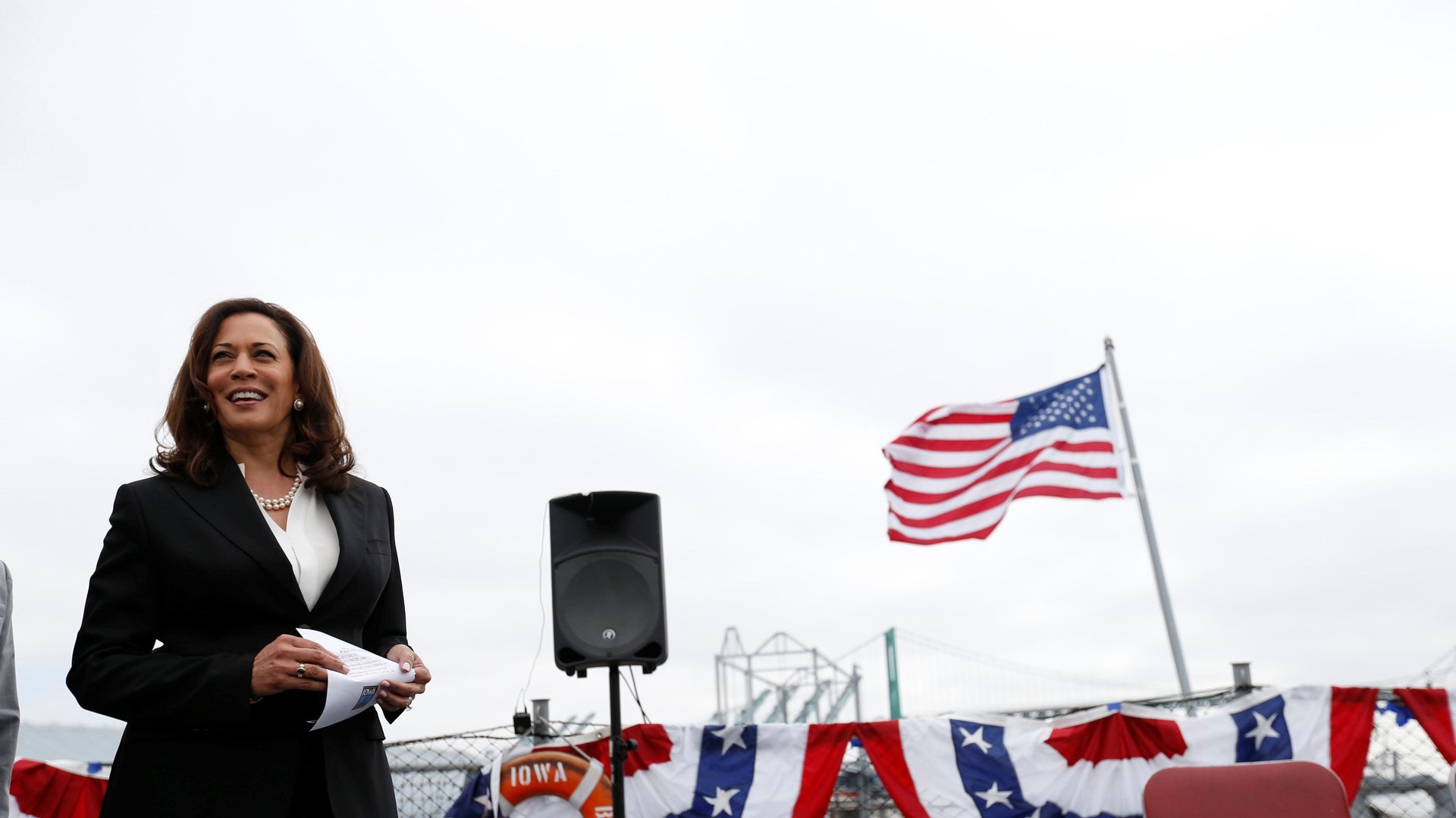Democrats are still at war with each other—but Kamala Harris could heal the rift
Six months into Donald Trump’s term as US president, the Democratic party remains at war with itself.


Six months into Donald Trump’s term as US president, the Democratic party remains at war with itself.
The progressive wing remains coalesced around Democratic primary candidate Bernie Sanders—currently the most popular politician in the US—whom many feel was intentionally undermined by establishment interests within the party. Meanwhile, Hillary Clinton supporters feel that their candidate—the first woman in history to be a major party’s nominee for presidency—received pushback from Sanders supporters that a similarly positioned male candidate would not have encountered. The result is an American left still cleaved in two.
The latest casualty in this war is California senator Kamala Harris—a newcomer to Capitol Hill whose verbal sparring with Republican attorney general Jeff Sessions was widely applauded by Democrats, sparking talk of a possible run for the 2020 Democratic presidential nomination. But voices from the farther reaches of the left moved quickly to quash any runaway fantasies of a president Harris, citing the senator’s alleged courting of major Democratic donors, who largely lined up behind Clinton’s failed 2016 campaign. Sanders’s 2016 campaign, in contrast, was kept afloat by small individual donations—a point of pride for progressives opposed to the influence of big money in politics. Thus the #NeverKamala movement was born.
It’s a sentiment that has been extended to a number of other Democratic politicians being floated for a possible 2020 candidacy, including New Jersey senator Cory Booker and former Massachusetts governor Deval Patrick. The fact that all three are politicians of color has led to allegations of racial bias.
The Week’s Ryan Cooper refutes this line of reasoning, arguing that the opposition to Harris draws on specific concerns about her past. He contends that as “the former attorney general of California, Harris is mistrusted by the left mostly because of her roots as a prosecutor. The Black Lives Matter movement has put anyone with law enforcement history under close scrutiny, and California’s criminal justice system is notoriously brutal (though it has improved recently).” He also highlights Harris’s failure during her tenure as one of the nation’s most powerful attorney generals to prosecute OneWest, treasury secretary Steve Mnuchin’s former bank, “for numerous instances of almost certain illegal foreclosure.”
How fair are the criticisms? Writing for The New Republic, David Daven argues that Harris’s record isn’t particularly extraordinary. ”Let’s recognize that no public official in this country, from Barack Obama on down, covered themselves in glory during the foreclosure crisis,” he reasons. “To say that Harris failed to prosecute bankers is simply to say that she was a public official with authority over financial services fraud in the Obama era.” Moreover, Harris’s defenders point out that she also has achievements that ought to appeal to the far left. Writing for The Nation, Sasha Abramsky holds up a landmark $25-billion settlement secured by Harris on behalf of California homeowners victimized by the foreclosure crisis—proof of her bona fides as a champion of the middle class.
It’s understandable that Harris’ backers would bristle at criticism from the most liberal wing of the party. But the fact is that these critiques are exactly what any Democrat considering a run for president in 2020 needs—because it gives potential candidates plenty of time to get their message right.
This is especially true for newcomers like Harris, who have time to build their progressive credentials, and are less encumbered (relatively speaking) by reputational baggage than more entrenched party standard bearers. Harris has wiggle room where Clinton did not. And with the second-most progressive voting record in the Senate combined with more mainstream appeal, she has undeniable potential to unite the party’s more disparate factions.
Harris has already signed onto a number of causes important to the party’s progressive wing, explicitly calling for a $15 minimum wage and expressing general support for single-payer health care. With Sanders’ Medicare-for-all bill on the horizon, she can perhaps further appeal to Bernie die-hards by signing on and advocating for its (however unlikely) passage.
#NeverKamala keyboard warriors may still resist. But they are only a tiny fraction of the progressive wave that rose up last year—a wave that has yet to crest. Widespread support therein for politicians like Tulsi Gabbard and Nina Turner indicate that most Democrats would be delighted to elect a woman of color to the White House. And with the right approach—one that recognizes the extraordinary movement Sanders has built, and the growing appetite among American voters for social-democratic policies—that woman could very well be Kamala Harris.